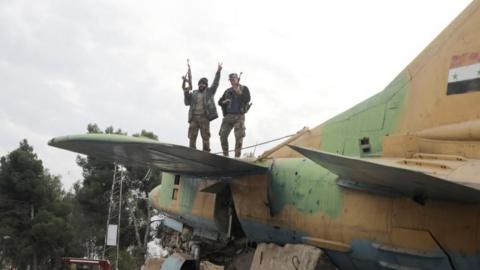The fall of Bashar al-Assad was almost unthinkable just a week ago, when rebels started their astonishing campaign against the regime from their base in Idlib, in Syria's north-west.
This is a turning point for Syria. Assad came to power in 2000 after the death of his father Hafez, who ruled the country for 29 years - and very much like his son, with an iron fist.
Assad junior inherited a tightly controlled and repressive political structure, where opposition was not tolerated.
At first, there were hopes that he could be different – more open, less brutal. But those were short lived.
Assad will forever be remembered as the man who violently repressed peaceful protests against his regime in 2011, which led to a civil war. More than half a million people were killed, six million others became refugees.
With the help of Russia and Iran, he crushed the rebels, and survived. Russia used its formidable air power while Iran sent military advisors to Syria and Hezbollah, the militia it supports in neighbouring Lebanon, deployed its well-trained fighters.
